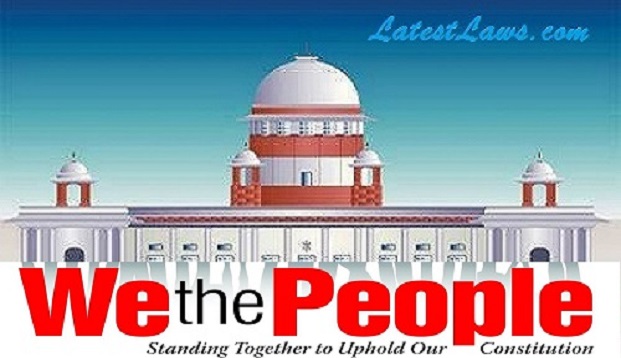August 23, 2017
Chief Justice J S Khehar led Bench had reserved its verdict on August 2 after hearing marathon arguments for six days.
Tomorrow the Top Court is likely to pronounce its judgement on the hot issue if the Right to privacy can be held as a Fundamental right under the Indian Constitution or not.
A 9-judge constitution bench headed by CJI JS Khehar had on 2nd August reserved its verdict after hearing arguments for 6 days over a period of 3 weeks, during which submissions were advanced in favor & against the inclusion of the Right to privacy as a fundamental right.
Besides Chief Justice Khehar, the other judges of the 9-judge bench are Justices D Y Chandrachud, J. Chelameswar, R F Nariman, S A Bobde, R K Agrawal, A M Sapre, S K Kaul & S Abdul Nazeer.
This hearing saw a number of senior advocates; including Attorney General K. K. Venugopal, Additional Solicitor General Tushar Mehta, Anand Grover, Arvind Datar, Kapil Sibal, Gopal Subramaniam, Shyam Divan, Rakesh Dwivedi & C A Sundaram advancing arguments either in favor/against the inclusion of Right to privacy.
This contentious issue emerged when Supreme Court was dealing with a batch of petitions challenging the Centre's move to make Aadhaar mandatory for availing the benefits of numerous social welfare schemes.
Initially, on 7th July, a 3-judge bench had said that all issues arising out of Aadhaar should finally be decided by a larger bench. This matter was then mentioned before CJI Khehar who set up a 5-judge constitution bench.
However, the 5-judge constitution bench on 18th July decided to set up a 9 judge bench to decide if the right to privacy can be declared a Fundamental right.
The decision to set up the 9 judge bench was taken to examine the correctness of 2 Supreme Court judgements delivered in the cases of Kharak Singh(1960) & M P Sharma(1950), decided by 6 & 8 judge benches respectively, in which it was held that this right wasn't a fundamental right.
On 2nd August, the bench had voiced concern over the possible misuse of personal info. in the public domain.
During the arguments, the bench had on 19th July observed that the right to privacy can't be an absolute right & the state may have some power to put reasonable restrictions.
The Attorney General had contended that Right to Privacy can't fall in the bracket of the Fundamental rights.
Source PTI
Related News @ Latest Laws-
2.8.2017 - Right to Privacy case: Day 7 proceedings before the 9 judge constitution bench
1.8.2017 - Right to Privacy case: Highlights of Day 6 proceedings before the Constitution bench
27.7.2017 - Right to Privacy case: Highlights of Day 5 Proceedings before the 9 Judge Bench
26.7.2017 - Right to Privacy case: Highlights of today’s proceedings before the 9-Judge Bench of SC
20.7.2017 - Right to Privacy case: Live Reporting of SC 9 Judge Bench by LatestLaws
19.7.2017 - Supreme Court expounds: Privacy is not absolute, State can regulate it by imposing reasonable restrictions
18.7.2017 - Supreme Court’s 9 Judge Bench to decide tomorrow: Whether Privacy is a Fundamental Human Right?
30.4.2017 - Facebook to SC: Users can quit if they find WhatsApp Privacy Policy unacceptable
5.4.2017 - SC refers WhatsApp privacy policy matter to Five Judge Constitution Bench
Picture Source :

























